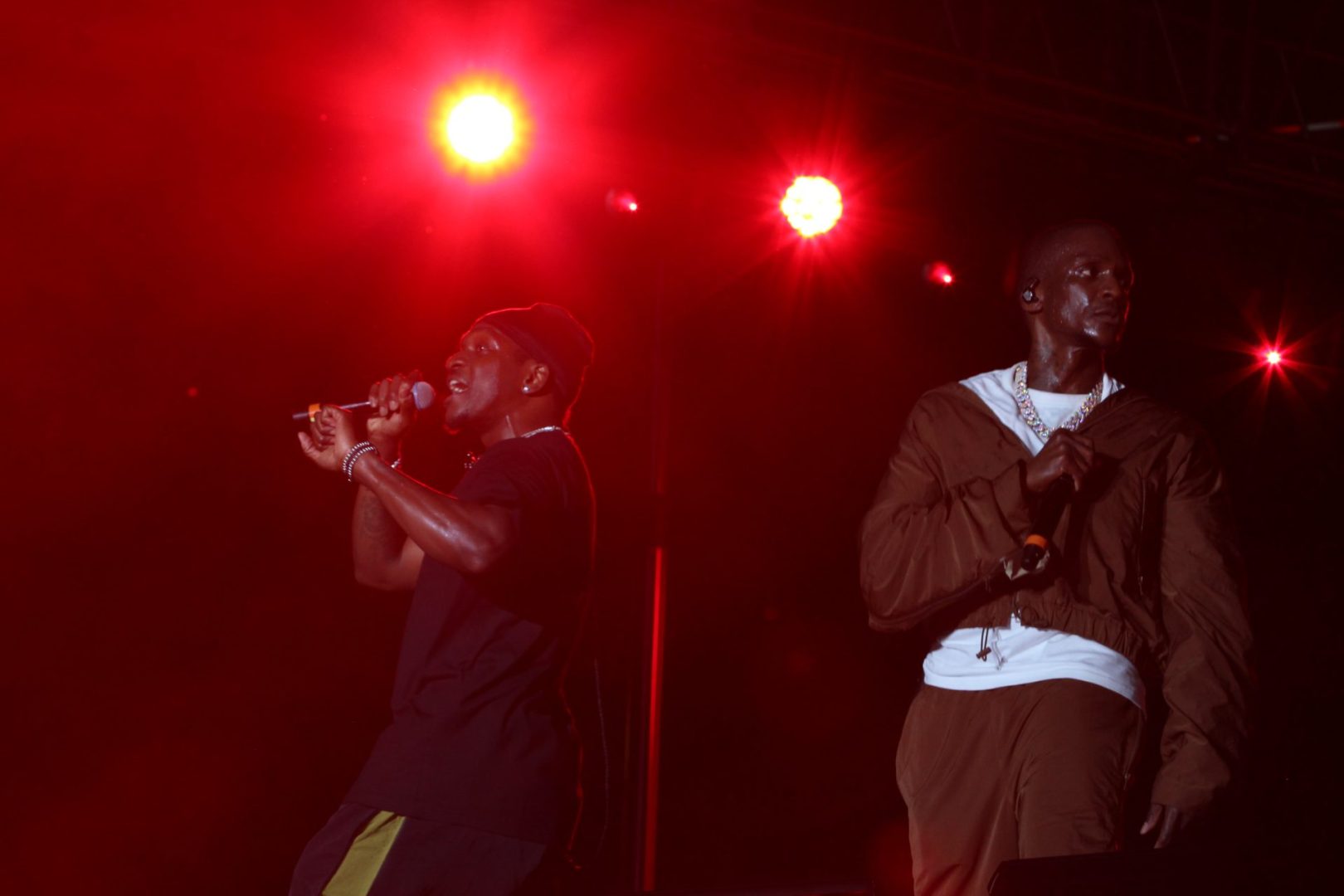The cramped confines of NPR’s Tiny Desk became hallowed ground Friday as Clipse delivered what many are calling their most emotionally charged performance in over a decade. Brothers Gene “Malice” Thornton and Terrence “Pusha T” Thornton transformed the modest studio space into a cathedral of hip-hop testimony, performing tracks from their surprise album Let God Sort Em Out with the fervor of men who have stared into the abyss and emerged with stories to tell.
The weight of time
Years have passed since Clipse last graced the music world as a unified force, and the intervening decades have carved deep lines into their artistry. Where once stood cocky young dealers-turned-rappers now sit weathered storytellers, their voices carrying the gravitas of experience and the wisdom of survival. The Tiny Desk format, typically reserved for folk singers and indie darlings, seemed almost too intimate for the raw power they unleashed.
Malice, now going by No Malice in his post-conversion Christian phase, anchored the performance with verses that oscillated between confession and condemnation. His delivery carried the weight of a man who has genuinely grappled with his past, each word carefully chosen, each pause deliberate. The transformation from his earlier persona wasn’t just artistic evolution—it was spiritual archaeology, digging through layers of accumulated guilt and grace.
Brothers in arms and art
The dynamic between the siblings crackled with unresolved tension and undeniable chemistry. Pusha T, whose solo career has kept him in hip-hop’s upper echelons, deferred to his older brother’s presence while simultaneously asserting his own artistic dominance. Their interplay suggested years of private conversations, family dinners where old wounds were prodded and new understandings forged.
The performance of tracks from their new album felt particularly charged, with both brothers trading verses about mortality and legacy. In the confined space, their words hit with the force of confessions whispered in a therapist’s office, each revelation more devastating than the last. The audience, a mix of NPR staff and invited guests, sat transfixed as the duo unpacked decades of accumulated trauma and triumph.

Sacred and profane
What made this performance transcendent wasn’t just the technical prowess—though both brothers demonstrated they’ve lost none of their lyrical dexterity—but the emotional honesty. No Malice’s verses about finding faith didn’t feel performative or sanitized. Instead, they carried the authenticity of someone who has genuinely wrestled with demons and emerged scarred but victorious.
Pusha T‘s contributions balanced his brother’s spiritual journey with street-level realism, creating a fascinating dialogue between redemption and ruthlessness. His performance showcased his ability to paint vivid pictures of their shared Virginia Beach origins while acknowledging the cost of their earlier choices.
The Clipse legacy reimagined
The intimate setting stripped away the typical hip-hop posturing, leaving only the essential elements: two voices, a beat, and a lifetime of experiences to mine. The absence of pyrotechnics and elaborate staging forced focus onto what has always been Clipse’s greatest strength—their ability to craft narratives that feel simultaneously personal and universal.
Their new material suggests a group uninterested in chasing contemporary trends or recapturing past glories. Instead, they’ve created something more valuable: a meditation on time, consequence, and the possibility of redemption. The album title Let God Sort Em Out isn’t just provocative—it’s a philosophical statement about accountability and faith.
Beyond the desk
The performance’s impact extended far beyond the studio walls. Within hours, clips circulated across social media platforms, with longtime fans expressing amazement at the duo’s continued relevance and newcomers discovering their artistry for the first time. The intimate format allowed viewers to witness something rarely seen in hip-hop: vulnerability without weakness, confession without self-pity.
As the brothers packed up their equipment and prepared to leave the studio, they left behind more than just a memorable performance. They had created a template for how veteran artists can remain relevant without compromising their integrity—by going deeper rather than louder, by choosing precision over volume, and by understanding that true power comes not from what you can take, but from what you’re willing to give up.














